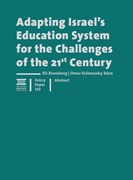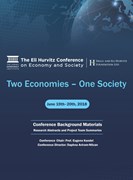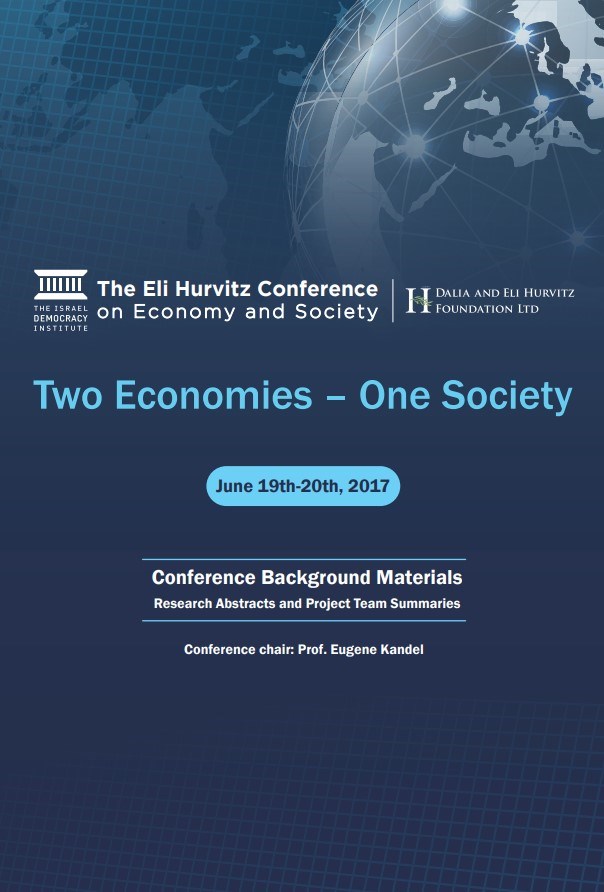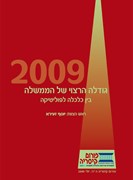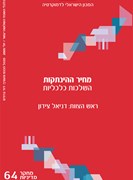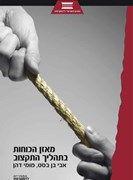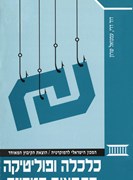

Publications Regarding Economy and Politics
Articles

Ambassador Dennis Ross joins IDI President Yohanan Plesner and Shira Barbibay- Shaham
Written By: Yohanan Plesner , Shira Barbibay-Shaham
Ambassador Dennis Ross, the counselor and William Davidson Distinguished Fellow at the Washington Institute for Near East Policy, joined IDI President Yohanan Plesner and Shira Barbibay-Shaham on a special English-language episode of their podcast for a discussion on the emerging regional order in the Middle East, U.S.–Israel relations, and President Trump’s 20-point plan for Gaza.

Leaving the Country Among Yeshiva Students of Draft Age
Written By: Gabriel Gordon, Eliyahu Berkovits
One of the key sanctions under debate for Haredim who evade mandatory military conscription is a prohibition on leaving the country. By reviewing the extent and characteristics of Haredim traveling abroad, this analysis paints a picture of how such a sanction would impact Haredi society.

MKs Lapid; Gantz; Elkin; Lazimi: IDI’s Eli Hurvitz Conference Continues for its Second Day
Written By: The Israel Democracy Institute
Press Release | IDI Eli Hurvitz Conference 2025 | May 28

Innovation Meets Regulation: Israeli Tech Founders, Government Officials, and the Future of Civil Service, This Afternoon at IDI’s Eli Hurvitz Conference
Written By: The Israel Democracy Institute
Press Release | IDI Eli Hurvitz Conference 2025 | May 27, Afternoon Session

President Herzog; BOI Governor; MK Mansour Abbas; PMO’s Prof. Avi Simhon and Other Key Leaders Kick Off the Eli Hurvitz Conference
Written By: The Israel Democracy Institute
Press Release | IDI Eli Hurvitz Conference 2025 | May 27, Morning Sessions

In the Shadow of War: Aggregate Budget, Spending Priorities, and the Implications of an Increased Security Burden | Executive Summary
Written By: Prof. Karnit Flug, Roe Kenneth Portal
This study was released ahead of the Eli Hurvitz Conference on Economy and Society 2025.

Haredi Integration and Tax Payments – The Burden and the Potential | Executive Summary
Written By: Gabriel Gordon
This research was released ahead of the Israel Democracy Institute's annual Eli Hurvitz Conference on Economy and Society, 2025.

The Proposed "Softened Rabbis Bill" Complicates the Budgeting Process for Religious Councils
Written By: Dr. Ariel Finkelstein
The recently proposed bill runs counter to accepted budgeting principles and undermines the autonomy of local governance.

Early Childhood Daycare Subsidies in Israel in Different Sectors
Written By: Gabriel Gordon,
A survey of daycare subsidies in Israel and recommendations for improved criteria that would encourage participation in the labor market among the ultra-Orthodox.

Workforce Participation of Haredi Yeshiva Students Under the Exemption Age
Written By: Gabriel Gordon
This study describes the employment trends among men registered in ultra-Orthodox yeshivas between the ages of 18-25. The findings are based on a reported work, or "legal work," so it is very likely that this is an underestimation of reality.

Employee Skills in Israel: Overview and Gap Analysis
Written By: Prof. Yotam Margalit, Zak Hirsch
Technological advancements, rapid globalization, and structural changes in the Israeli economy over the past few decades have led to significant shifts in the demand for workers and in the tasks required of them, as well as in the characteristics of their skills and qualifications. This study offers insights on these questions using a variety of data sources and by employing two distinct empirical approaches.

A Historic Supreme Court Hearing on Haredi Conscription and Yeshiva Funding
Written By: Adv. Shlomit Ravitsky Tur-Paz
Israel's Supreme Court convened to hear arguments on the issue of drafting ultra-Orthodox yeshiva students who no longer are exempt from military service, and the legality of providing funding for yeshivas that enroll them as long as no new law has been legislated on this issue.

Financial Aggregates and New Budgetary Priorities for Israel
Written By: Prof. Karnit Flug, Tzachi David, Roe Kenneth Portal
In May 2023, the Knesset approved a two-year state budget for 2023–2024. However, following the outbreak of the war in Gaza and the accompanying conflict in the north, the budget's composition, safety cushions, and especially the priorities it reflects are no longer suited to Israel’s economic and geopolitical realities.

Coronavirus and Unemployment in Israel
Written By: Daphna Aviram-Nitzan
Daphna Aviram Nitzan presents an analysis of unemployment in Israel in the wake of the coronavirus pandemic.

The Coronavirus: Israel's Economy and Economic Policy
Written By: Prof. Karnit Flug
Prof. Karnit Flug's press briefing today focued on the Coronavirus’ effect on the Israeli economy and policies that could mitigate the damage inflicted by the pandemic.

The COVID-19 Crisis - Economic Impact and Economic Policies
Written By: Prof. Karnit Flug
What will be the economic ramifications of the coronavirus outbreak on the Israeli economy? Prof. Karnit Flug explains.
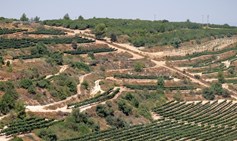
The UN Blacklist – A Devastating Blow, or Prelude to Future Dangers?
Written By: Prof. Yuval Shany
The UN Human Rights Council published a database of Israeli and international companies operating in the West Bank - what are the ramifications and possible outcomes?

The Israeli Economy: A Report Card
Written By: Prof. Karnit Flug
Prof. Karnit Flug, former Governor of the Bank of Israel and currently Vice President for Research at the Israel Democracy Institute, analyzes the strengths and weaknesses of the Israeli economy.
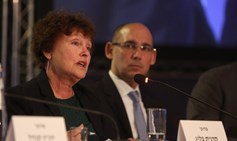
Ability to Make Economy Related Decisions Impaired
Prof. Karnit Flug, Vice President of IDI and Former Governor of the Bank of Israel spoke at the 2019 Eli Hurvitz Conference on Economy and Society: “With no government in place, the ability to make economy-related decisions is impaired. In the current situation, what is done depends entirely on what the Knesset Finance Committee is prepared to do."

Israel is in Danger of Becoming a Weakened State
Benny Gantz, Chair of the Blue and White party and former IDF Chief of Staff spoke at the 2019 Eli Hurvitz Conference: "Government ministers bicker daily with the professional echelon - a situation that harms Israelis"
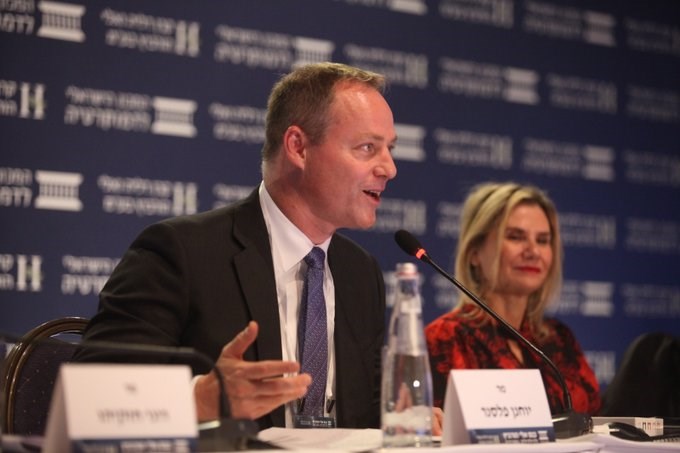
Israel’s Economy: Island of Stability with Troubling Trends
Yohanan Plesner, President of the Israel Democracy Institute and Prof. Eugene Kandel, CEO Start-Up Nation Central, open the two day conference, welcoming senior executives from the public and private sectors.

The Coming Capitalist Revolution
Written By: Prof. Yedidia Z. Stern
Profit remains the ultimate objective, but the focus should be on profit for all those with a stake in a company, and not just its shareholders

Ease of Doing Business 2020 Index
In response to the Ease of Doing Business 2020 index that was published this morning, Daphna Aviram-Nitzan, director of the Center for Governance and Economics at the Israel Democracy Institute, who leads the regulation reduction project at the Institute, commented on Israel moving up 14 slots to the 35th place after 5 points improvement last year.

Quarter of the Population Gives Government's Policies a Failing Grade
Two and a half weeks ahead of the elections, a special IDI survey reveals that the Israeli public gives government economic policies a failing grade and supports increasing the budgets allocated to health, education, welfare, and public transportation services

Misery Loves Company
Written By: Dr. Asaf Malchi
In light of their demographic growth, the ultra-Orthodox community in Israel have to attempt to become part of in the broader Israeli society.

Israel Climbs Five Spots in the World Bank’s Ease of Doing Business Index
Israel improved by five spots over last year in the index of 190 countries. In first place is New Zealand, followed by Singapore, Denmark, Hong Kong, and South Korea. The Ease of Doing Business Index is an international indicator of how easy it is to do business in various countries.

Survey of Public Attitudes on Economic Policy (June 2018)
On the occasion of this year’s Eli Hurvitz Conference on Economy and Society (June 19-20) the Israel Democracy Institute published a special survey to assess public opinion on Israel’s economic future.
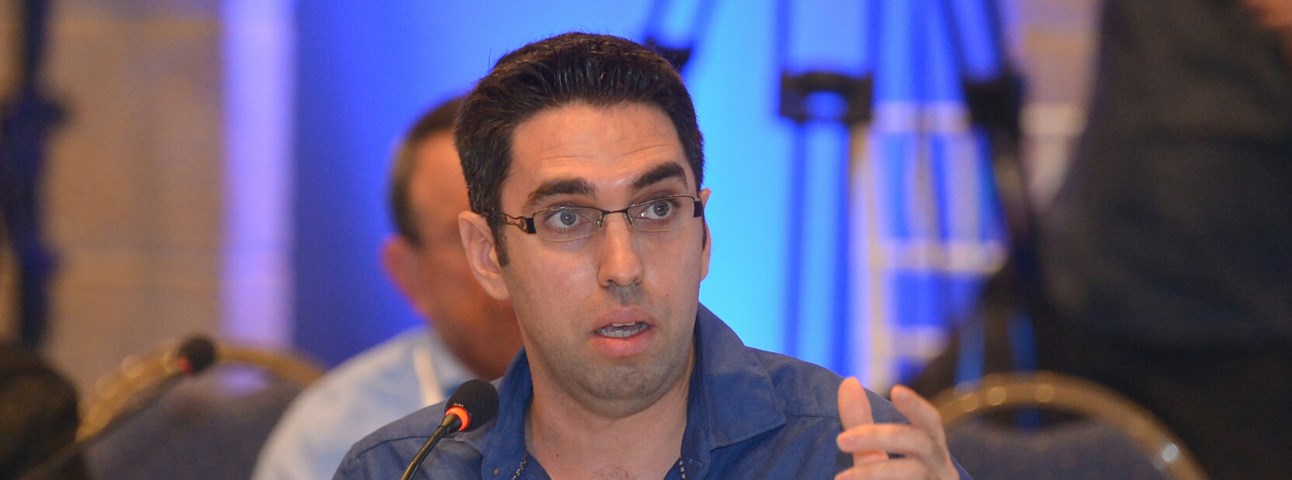
Israel needs a Paradigm Shift: Greater Compatibility Between Human Capital and the Economy
Written By:
Israel suffers from a shortage of skilled workers in manufacturing industries and hi-tech and an overflow of the service sector; priorities in the allocation of public resources for the training of human capital must be changed to better fit the needs of the economy.
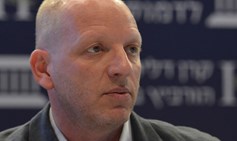
Israel’s future labor market needs updated models
Written By: Prof. Yotam Margalit
The number of vacation days in Israel is among the lowest in the world. Research by Prof. Yotam Margalit presents a new model which will ensure a minimum of 18 vacation days for each worker.

Top OECD Official: Israel Must do more to Integrate Arabs and ultra-Orthodox into the Economy
Dr. Peter Jarrett, the head of the Country Studies Division at the OECD, says the government must do more to integrate all Israelis into the economy if it is to continue to prosper and grow. "Boasting that Arabs and Ultra-Orthodox Aside, Israel's Situation is Excellent - is Simply shortsighted and Foolish."

Mission: Open a factory in Israel in 18 months
An ambitious plan aims at slashing the 4-6 years it currently takes to pass all the regulatory hurdles in Israel

Jerusalem Report: Welcome to 21st Century Politics
Written By: Elli Wohlgelernter
Poorly funded and under threat from personalization and social media, political parties are in decline.

Israel Exemplifies Rise of Personalized Politics
Written By: Prof. Gideon Rahat
Donald Trump’s surprise win seems to illustrate the awesome power of the Internet-savvy individual in politics.

Bank of Israel's Karnit Flug: 'Ensure More Ultra-Orthodox Males Receive a Complete Secular Education'
srael's GDP is 40 percent lower than that of the U.S. and its level of productivity is 33% less than most OECD countries, according to a presentation by Dr. Karnit Flug, governor of the Bank of Israel.

Israel Democracy Institute's First-Ever Economic Survey
As the Israel Democracy Institute's annual Eli Hurvitz Conference on Economy and Society kicks off today in Jerusalem, IDI's Guttman Center for Public Opinion and Policy Research sheds new light on Israeli socioeconomic discourse.

Bank of Israel Governor Karnit Flug, Ministry of Finance Director-General Shai Babad to Headline Eli Hurvitz Conference on Economy & Society
Israel Democracy Institute's leading economic conference will focus on integrating innovation into the government, actuarial crisis,
and role of business press, among other topics

The High Price of Ignoring Poverty
Written By: Dr. Sami Miaari
Following the publication of the Poverty Report, Dr. Sami Miaari points out the large percentage of Arab Israelis that live in poverty. He says the current situation requires a new strategy and economic investment on several levels simultaneously. This article first appeared on Times of Israel.

Shemitat Kesafim: The Year of Escape from Debt
Written By: Prof. Benjamin Porat
Dr. Benny Porat discusses the precept of debt cancellation during the sabbatical year (Shemita) and proposes ways in which to update this practice to suit the economics of contemporary Israel and create a model society.

Transparency in Local Authority Budgets
Written By: Dr. Tehilla Shwartz Altshuler
Dr. Tehilla Shwartz Altshuler discusses the challenges to transparency in the budgets of Israel's local authorities, including the need to make budgets accessible, to enable searches within budgets, and to facilitate comparisons between the budgets of different authorities.

Shmita: Rest, Share, Release
Written By: Prof. Yedidia Z. Stern
An exploration of the existential, social, and economic dimensions of the Shmita year, that calls for bringing together social, moral, cultural, religious and national forces to implement the idea of Shmita in non-agricultural and national contexts in Israel.
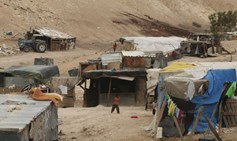
Regulating Bedouin Settlement: A Disengagement Plan for the Negev
Written By: Ronit Levine-Schnur
Ronit Levine-Schnur analyzes the Bill to Regulate Bedouin Settlement in the Negev 5773–2013, warns that it seems to be motivated by an exaggerated fear of a Bedouin takeover of the Negev, and offers an alternative approach.

State Involvement in Equitable Distribution: A Comparison of the Jewish and Arab Sectors in Israel
Written By: Amit Lazarus
An article on the role of the State in the redistribution of economic resources during the first decade of the 21st century, which was written as part of IDI’s Arab-Jewish Relations project.

Value in Doing Business with Israel
Written By: Barak Cohen
Despite last summer's war in Lebanon, Hamas's rise to leadership, Hizbullah rockets being aimed at Israeli cities, and international boycotts, Israeli economy is thriving, the national debt and unemployment have significantly dropped, and investors continue to look to Israel as fertile ground for investment.

Active Labor Market Policy Must Become Priority
Written By: Prof. Yotam Margalit
For Israel's economy to grow, significant investment in building a strong and effective infrastructure for occupational training and reemployment is critical.
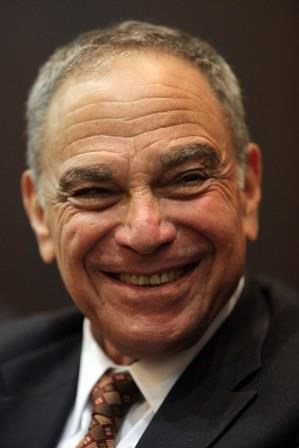
Professor Eytan Sheshinski joins the Israel Democracy Institute (IDI) as a Senior Researcher in the Center for Governance and the Economy
Top Israeli economist, Professor Eytan Sheshinski, has joined IDI as a senior researcher in the Center for Governance and the Economy, under the leadership of Dafna Aviram-Nitzan.

